Which supplements should I take to build muscle?
If you’re looking to build muscle, these are the supplements that can help you on your way
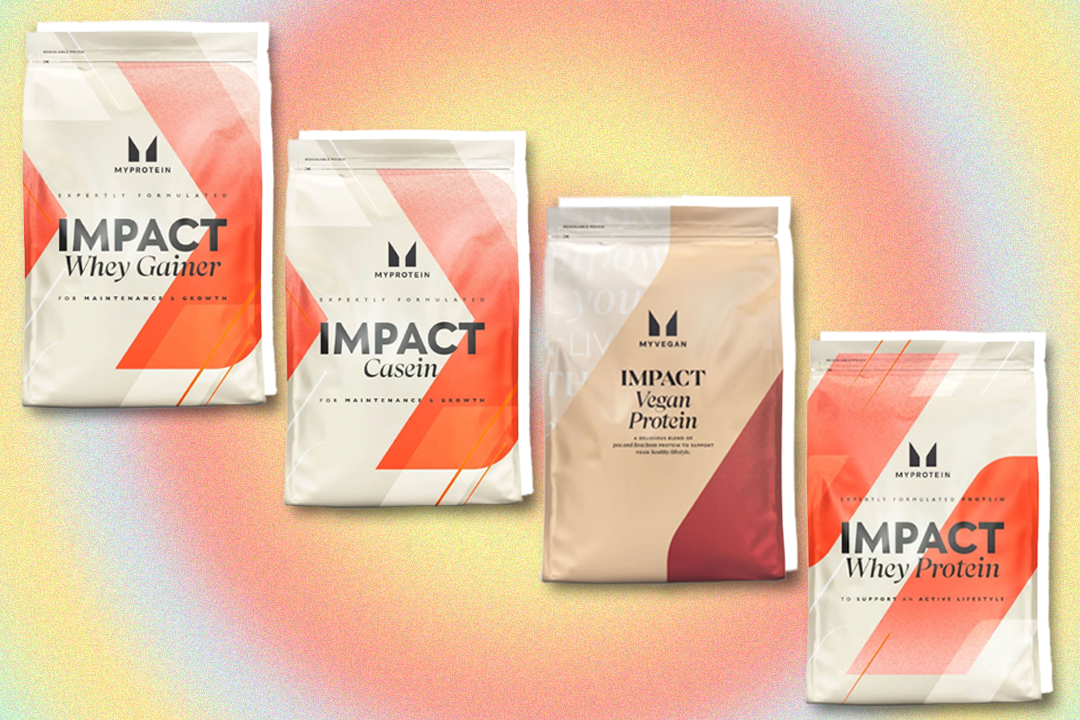
Building muscle is big business, with the workout supplement industry worth billions of pounds. It’s no wonder there are so many different options on the market, but the sheer variety on offer can make it difficult to know which ones are actually worth buying.
The answer will always depend on your individual needs and context: factors like what your diet looks like, how you’re training, and how much you’re training. But there are still a few stalwarts which have consistently proven themselves to be worthy inclusions in your supplement wishlist.
Several of them centre around the same magic word: protein. Without this macronutrient your body can’t build muscle, so the primary purpose of many of these supplements is to drive up your daily intake.
There are also options intended to boost your strength, improve your training quality and speed up the muscle regeneration process. So, while you can build muscle simply by lifting weights and eating an appropriate, protein-rich diet, these supplements could be the lift you need to see elevated results.
Which supplements should I take to build muscle?
Whey protein
It’s no great surprise that whey protein sits atop the muscle-building supplement pyramid. Muscle protein synthesis is the process by which the body builds new muscle, and you can’t have muscle protein synthesis without getting enough protein.
The National Academy of Sports Medicine recommends consuming between 1.6-2.2g of protein per kilogram of bodyweight per day if you’re trying to build muscle. The best protein powders deliver 20g or more of protein per serving, taking you considerably closer to this goal.
Whey protein is also a complete protein source. Protein molecules are made of amino acids, with the body requiring all 20 different amino acids to function properly and grow muscle optimally. Of these 20, 11 can be naturally produced by the body while nine need to be consumed. These are called essential amino acids, and a food or drink with all nine of them is considered a complete protein source.
And finally, whey is a “fast-acting” protein, so the amino acids you consume will be available to your body sooner for building new muscle.
The whey protein to buy
Myprotein impact whey protein 1kg: Was £41.99, now £17.49, Myprotein
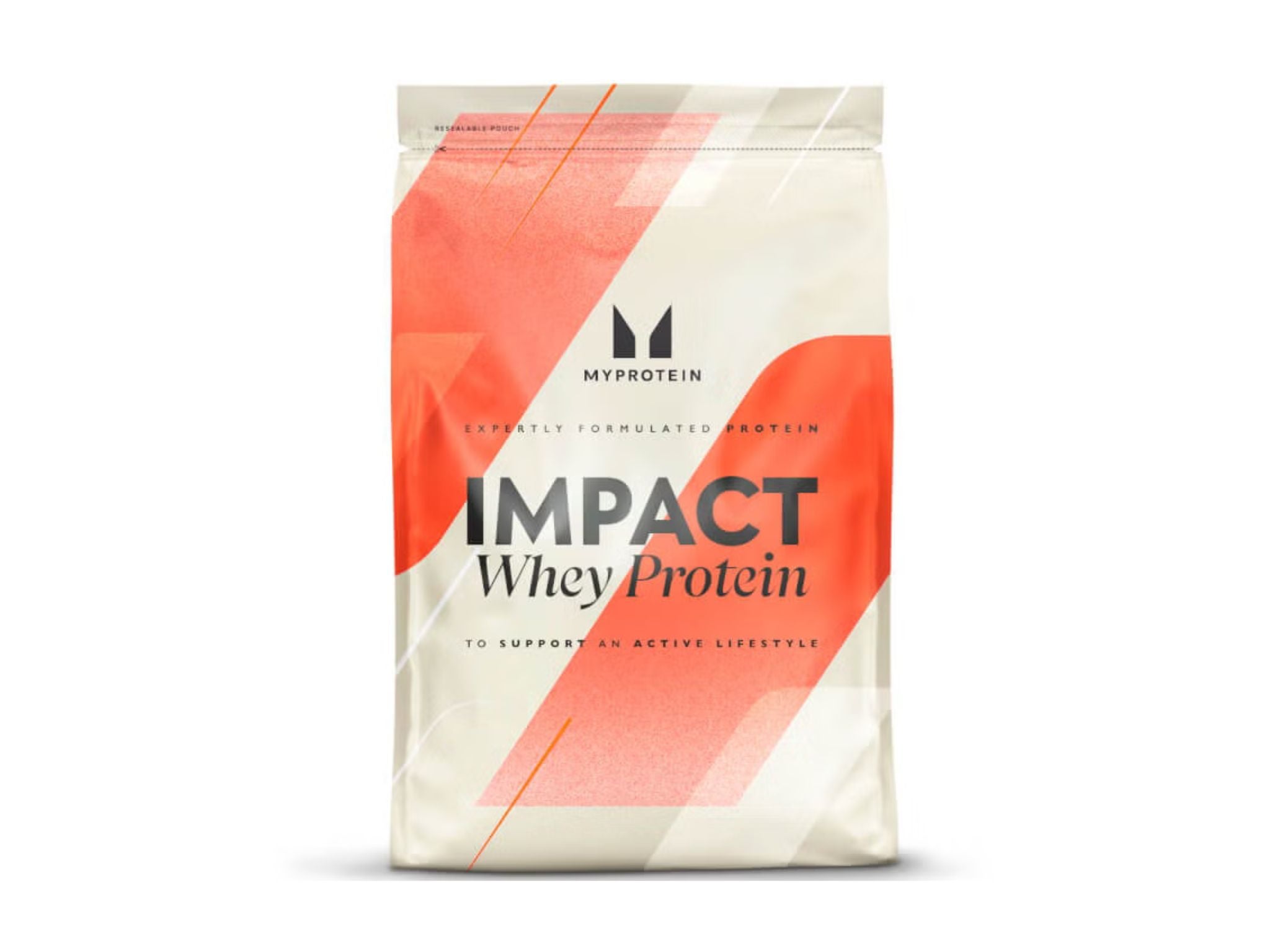
Myprotein’s impact whey protein is an affordable way to top up your daily protein intake. You can usually use the brand’s ever-present discount codes to pick up a 1kg (33-serving) pouch for £20 or less, and it’s available in more than 35 flavours, so there’s something to suit most palates.
Vegan protein
Vegan protein powders offer the same benefits as whey protein, but keep things plant-based to suit a vegan diet. Some people also prefer it, finding it easier to digest, and it’s also a good fit for those looking to follow a high-protein diet while avoiding dairy products.
It still takes you considerably closer to your protein goals, with the best options providing 20g or more per serving, although the protein source can vary from shake to shake. Popular options include soy protein, pea protein, rice protein, fava protein and hemp protein.
On their own, only soy protein represents a complete protein source. However, many brands blend them together to cover all nine essential amino acids. For example, Myprotein’s impact vegan protein contains a blend of pea and fava bean protein to provide 24g of protein and a complete amino acid profile.
The vegan protein to buy
Myprotein impact vegan protein 1kg: Was £30.99, now £12.80, Myprotein.com
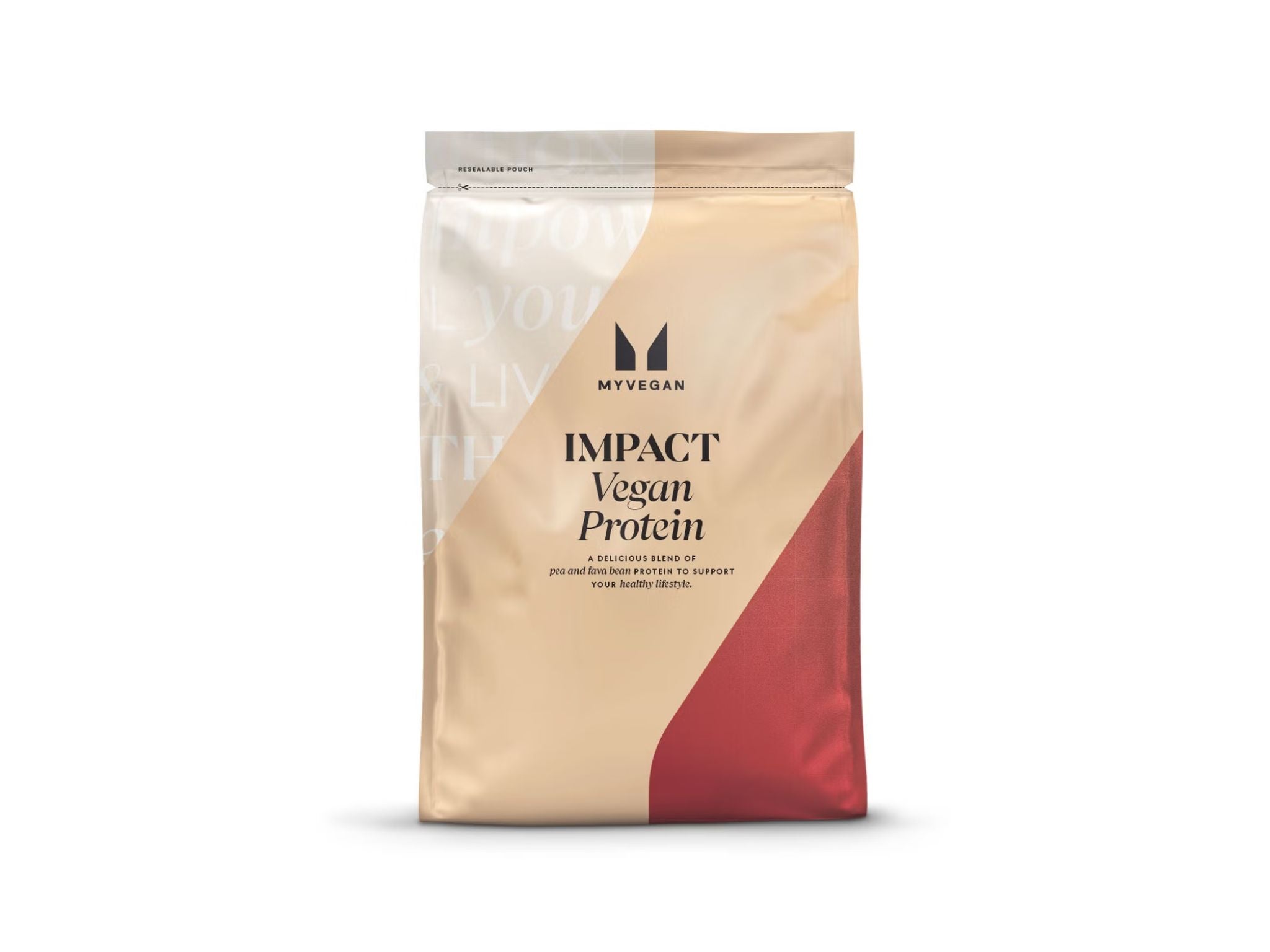
If you’re after a practical plant-based protein source, look no further than Myprotein’s impact vegan protein powder. The combination of pea and fava protein provides 24g of protein per serving (1g more than the brand’s regular impact whey), and last time we looked a 1kg bag would only set you back £12.80, working out at just under 39p per scoop.
Creatine monohydrate
Creatine’s main contribution to muscle growth is indirect, but important nonetheless. It can allow you to work out harder for longer, and recover faster, providing the training stimulus needed to trigger hypertrophy (muscle development).
It’s a natural substance produced by the body and primarily stored in skeletal muscle cells. It can also be consumed, either through foods like red meat and seafood, or as a supplement.
The aim of creatine supplementation is to increase your phosphocreatine stores, as this substance is used to produce your body’s energy currency, adenosine triphosphate (or ATP for short). The more phosphocreatine you have, the better you’re able to rapidly replenish ATP, providing on-tap energy to your body for explosive activities like heavy lifting.
The creatine monohydrate to buy
Myprotein impact creatine monohydreate 250g: Was £15.99, now £7.95, Myprotein.com
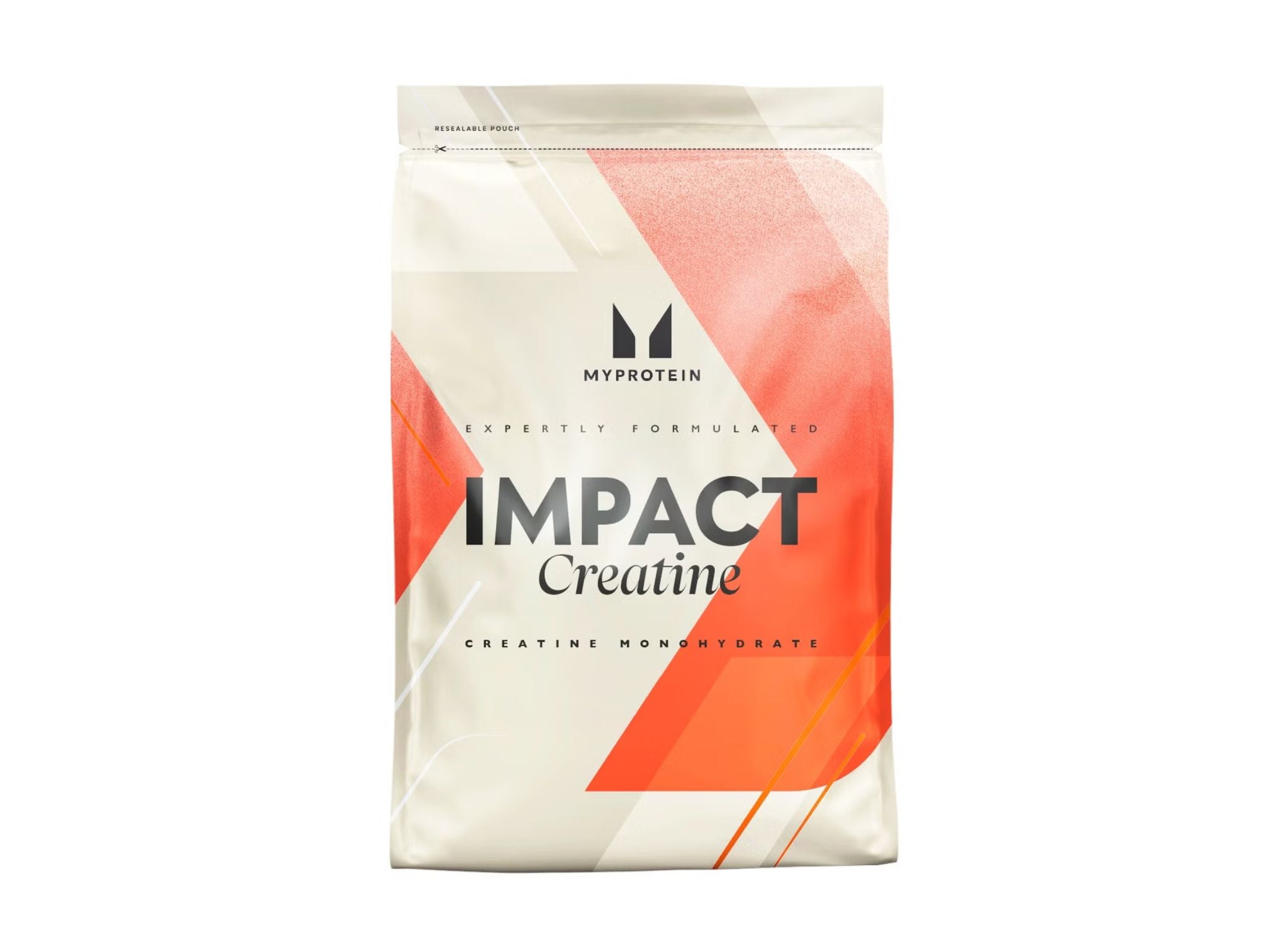
Creatine monohydrate supplements can be costly, but this Myprotein option bucks the trend – an 83-serving pouch has an RRP of £15.99, and can usually be snapped up for a fraction of this price in various on-site sales. It’s also available in a few refreshing flavour options, which can make for a far more enjoyable post-workout drink.
Weight gainer
Optimal conditions for muscle growth can be boiled down to four main factors: effective resistance training, ample recovery, adequate protein intake and a calorie surplus. This final factor simply means consuming more calories than you’re burning, and it can help with muscle gain as it provides your body with the energy it needs to support your normal bodily functions and while fuelling the hypertrophy process.
Weight gainer (or mass gainer) shakes balance a heavy hit of protein with even more significant servings of carbs and calories. The extra carbs and calories can be especially handy if you lead an active lifestyle, as your total daily energy expenditure (the number of calories you burn in a day) will be higher so a calorie surplus will be harder to achieve.
The weight gainer to buy
Myprotein impact weight gainer 1kg: Was £22.99, now £12.10, Myprotein.com
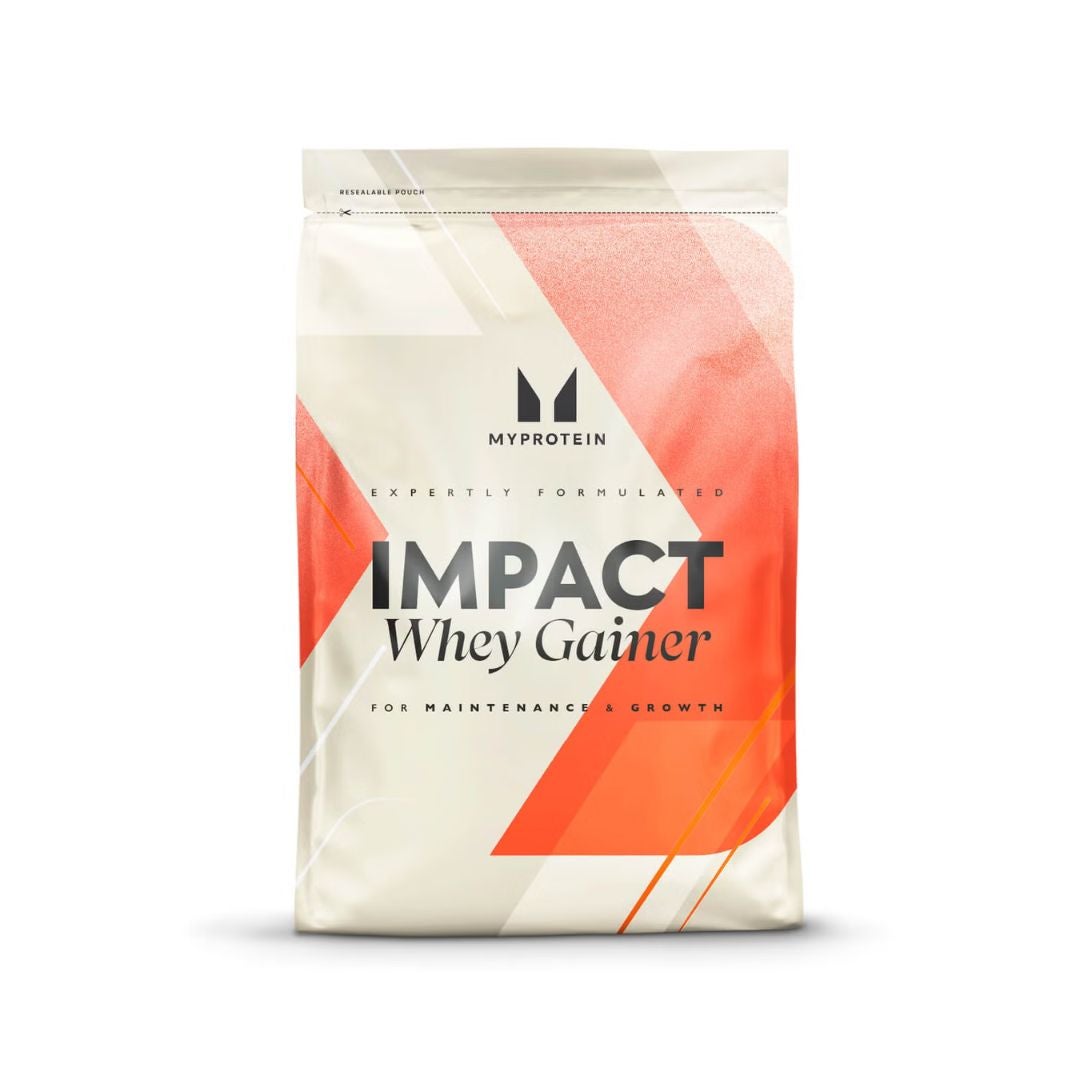
Myprotein’s weight gainer shake has a smaller serving size than many rivals we’ve tried, meaning each bag goes much further (a 1kg pouch makes 10 shakes). But it still offers a decent dose of protein (31g), carbs (50g) and calories (387) to support muscle growth and recovery.
Casein
The two major types of proteins found in milk are whey and casein. Whey is the liquid byproduct when making cheese, which some bright spark realised it could be processed into powder to make a high-quality, fast-acting protein source. But casein has its uses too.
As a supplement it shares a lot in common with whey. It comes in a powdered form, provides all the essential amino acids, delivers upwards of 20g of protein and is usually available in a range of milkshake-esque flavours. But it’s designed to be taken before bed or between meals because it takes a long time to be digested and absorbed by the body. As a result, it provides a steady supply of protein while you snooze, helping you hit your daily protein targets to support muscle growth and recovery.
The casein to buy
Myprotein impact casein 1kg: Was £41.99, now £20, Myprotein.com
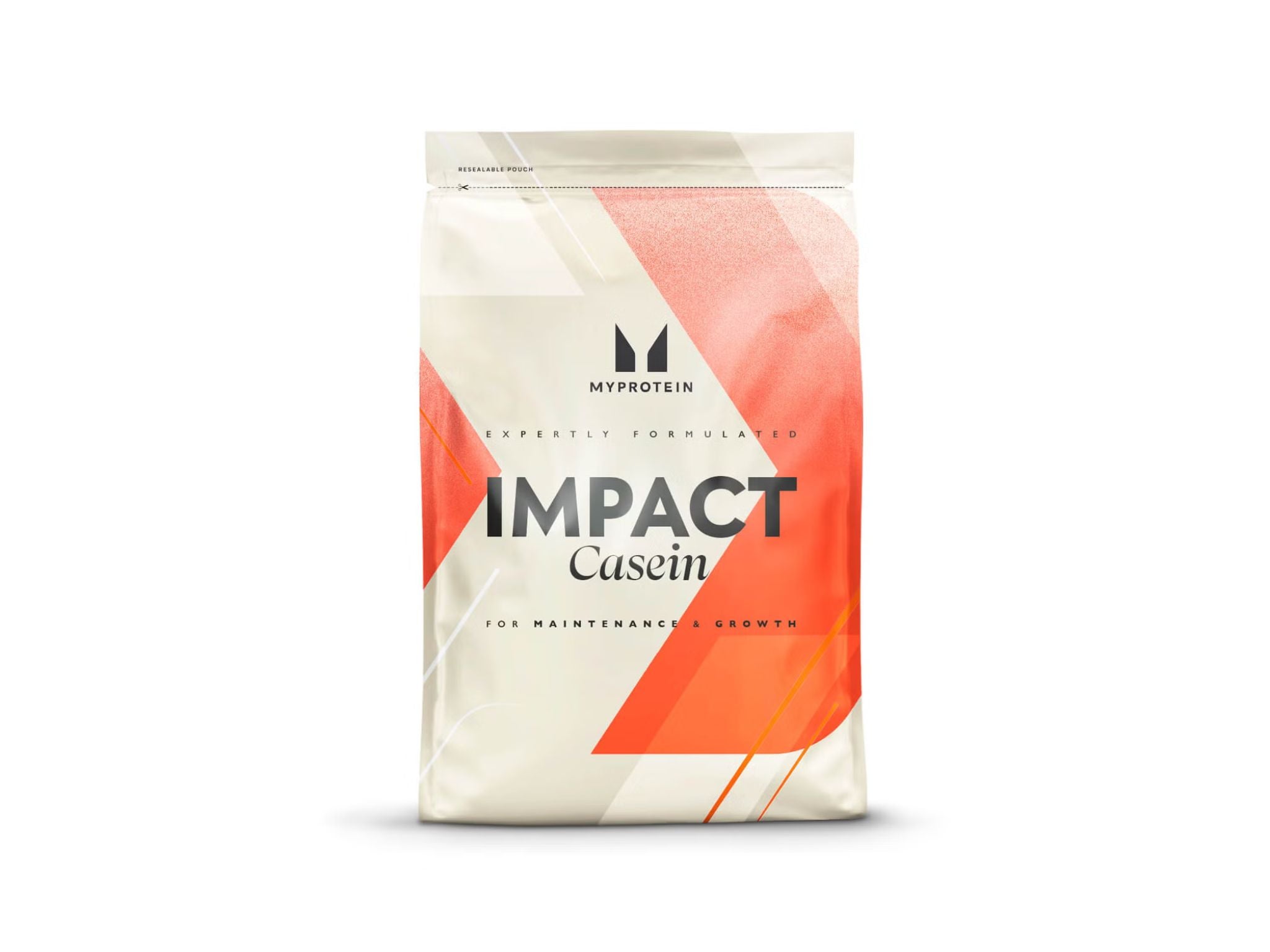
A 22g protein provision and five flavour options (including milk tea, which many may appreciate before bed) make this an attractive option if you’re in the market for a casein supplement. It also shares the usual Myprotein perk of being subject to almost-constant special offers, so keep your eye out for price cuts.
Read more: The three supplements I use every day to build strength and muscle





Join our commenting forum
Join thought-provoking conversations, follow other Independent readers and see their replies
0Comments